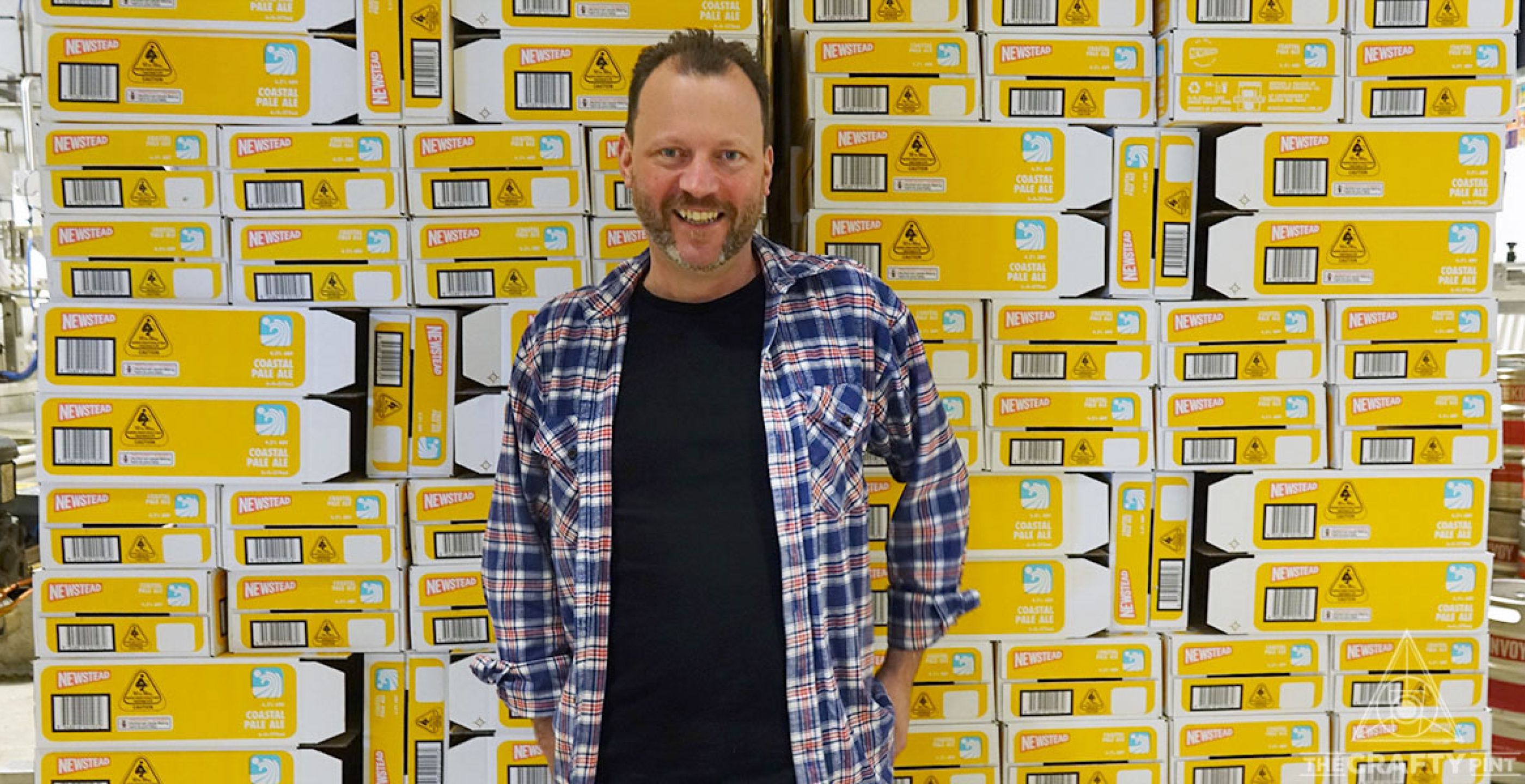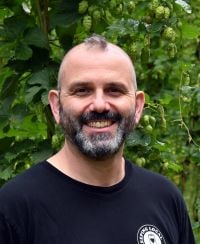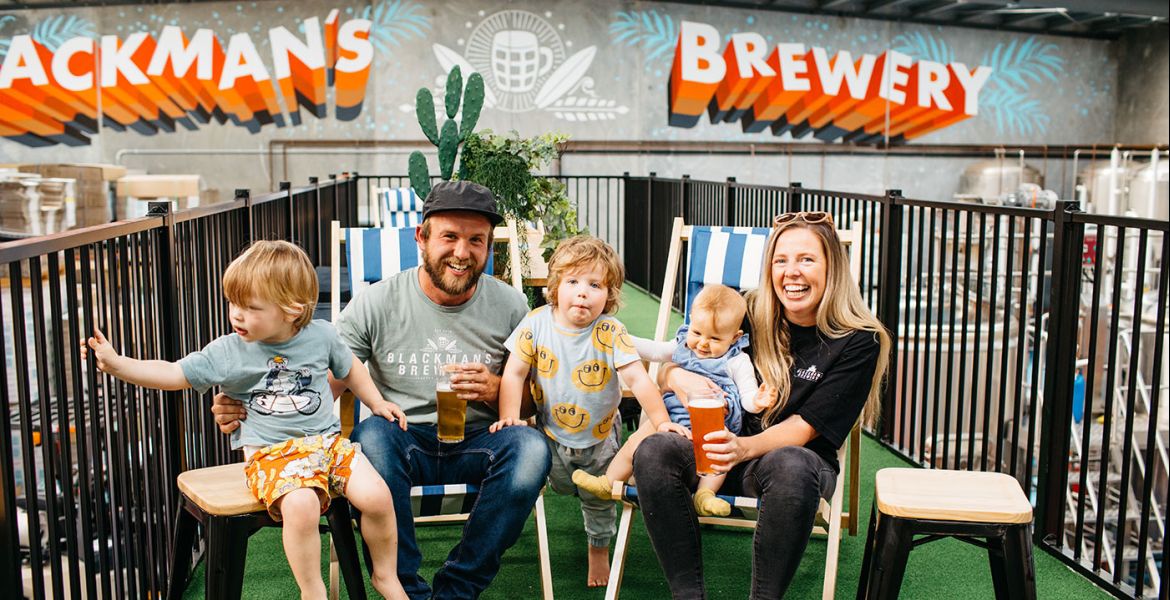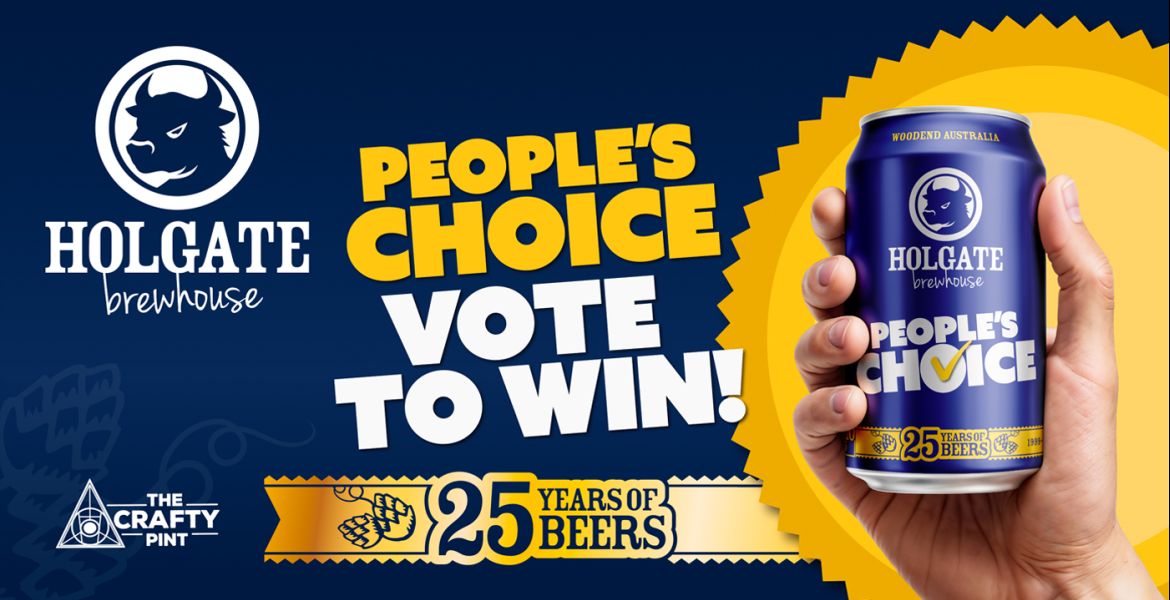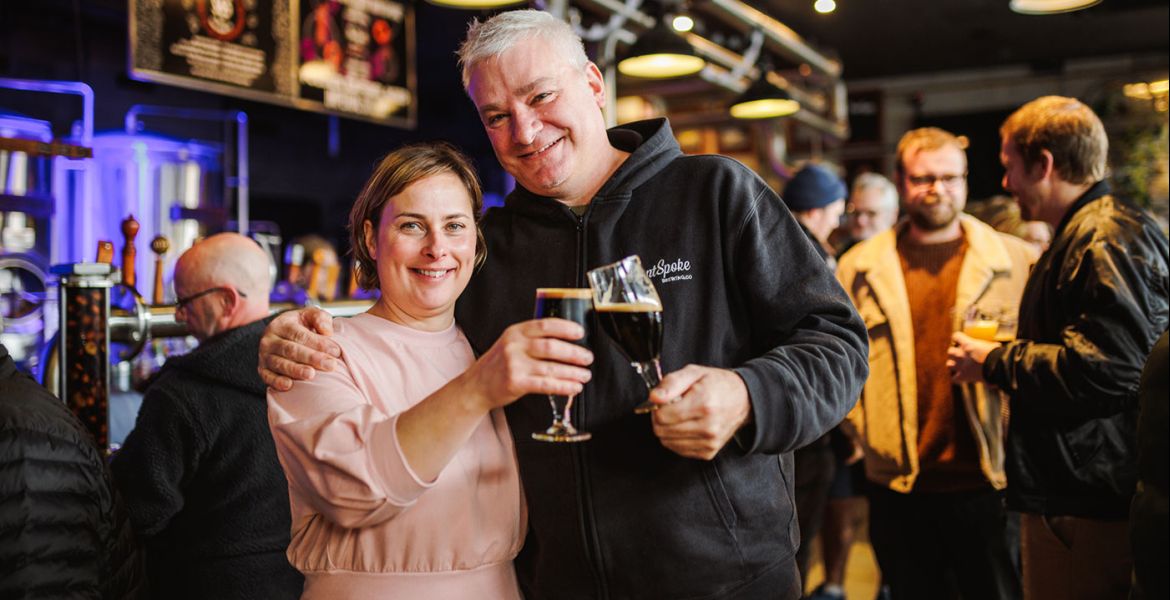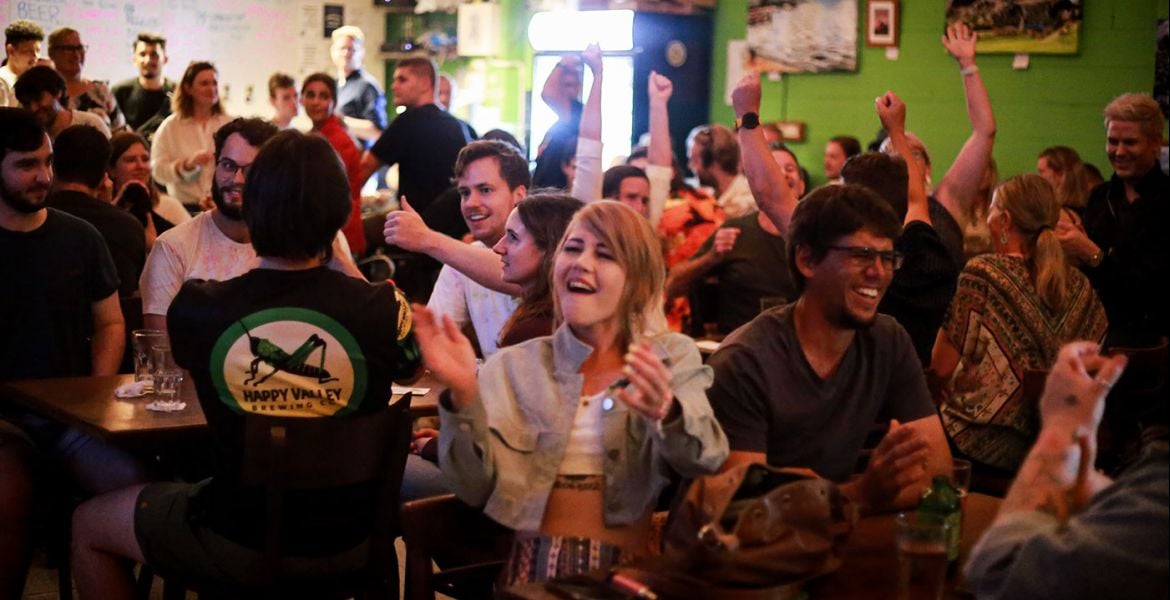Fifteen years ago this month, back when The Crafty Pint was little more than a mental blastocyst, I went on my first brewery tours. They weren’t my first contact with the Australian beer world – I’d somehow ended up playing for Mountain Goat’s indoor cricket team not long after moving to Melbourne from the UK – but I’d not been behind-the-scenes, so to speak, until penning a travel piece of sorts for The Age.
The first stop on the tour was 3 Ravens, then one of the handful of pioneering craft breweries found in Greater Melbourne, now the city’s longest-establish indie. And welcoming guests to the warehouse in which they still brew to this day was Marcus Cox.
He was their first external hire, joining a business founded by a group of mates with an engineering business that occupied most of the same building, and charged with making some less-than-great beers better with what limited resources were on hand.
These days, you’ll find Marcus helming brewing operations at Newstead Brewing in Brisbane, as he closes in on two decades in the industry – a milestone he’ll mark before the year is out.
In between times, he helped launch Thunder Road Brewing, where he oversaw back-to-back Champion Brewery trophies at the Australian International Beer Awards, before moving to the States to help build Mindful Brewing's brewery. Completing the circle, he’s likely to be back at a brewery in Victoria before too long, as his wife has landed a job back in the city where his career in beer began.
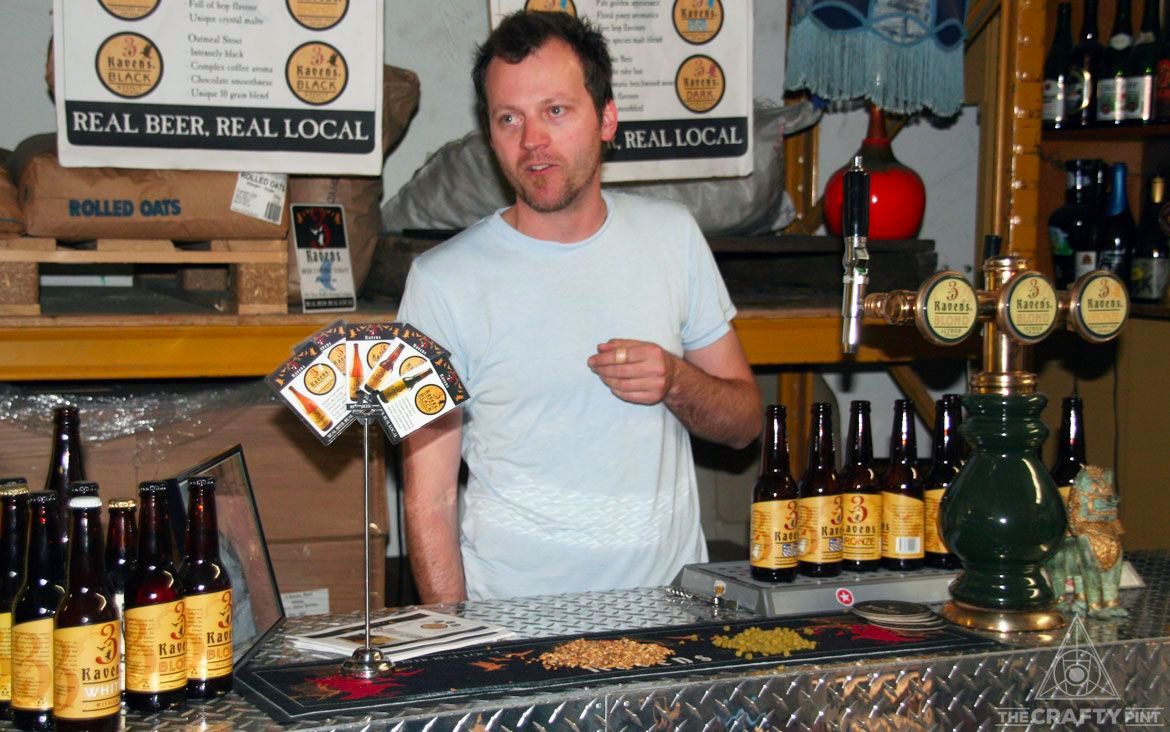
Ahead of his 20th anniversary as a brewer, we caught up with him for our Brew & A series, a chat which coincided with another anniversary too: a year since Newstead were able to start brewing at their Milton home again after it ended up underwater in the floods of February 2022. It was a devastating chapter for the family-run operation, and one that saw Marcus charged with, if not building from scratch, then very much rebuilding another brewery.
“The toilets came up. There was brown, murky shit coming out of everywhere. The water was up to the one-metre mark – it even lifted the EFTPOS machine off the bar,” he says of the impact of the floods.
“We got rid of some of the tide marks, but even with a paint job some of them still come through.”
While Suncorp Stadium across the road from the brewery was up and running within ten days, it took even the Macca’s around the corner several months to reopen. For Newstead, it was seven months before they were able to fire up their brewery in earnest again.
That followed a period in which they lost pretty much all of their customers – from supermarkets to indie retailers – due to an inability to maintain a consistent supply. They’d been supported in the meantime with free or cost price batches of their beers from Aether, Brouhaha and Balter, had brewed a few keg batches at Holgate in Victoria, and endured some pretty gnarly logistical challenges along the way.
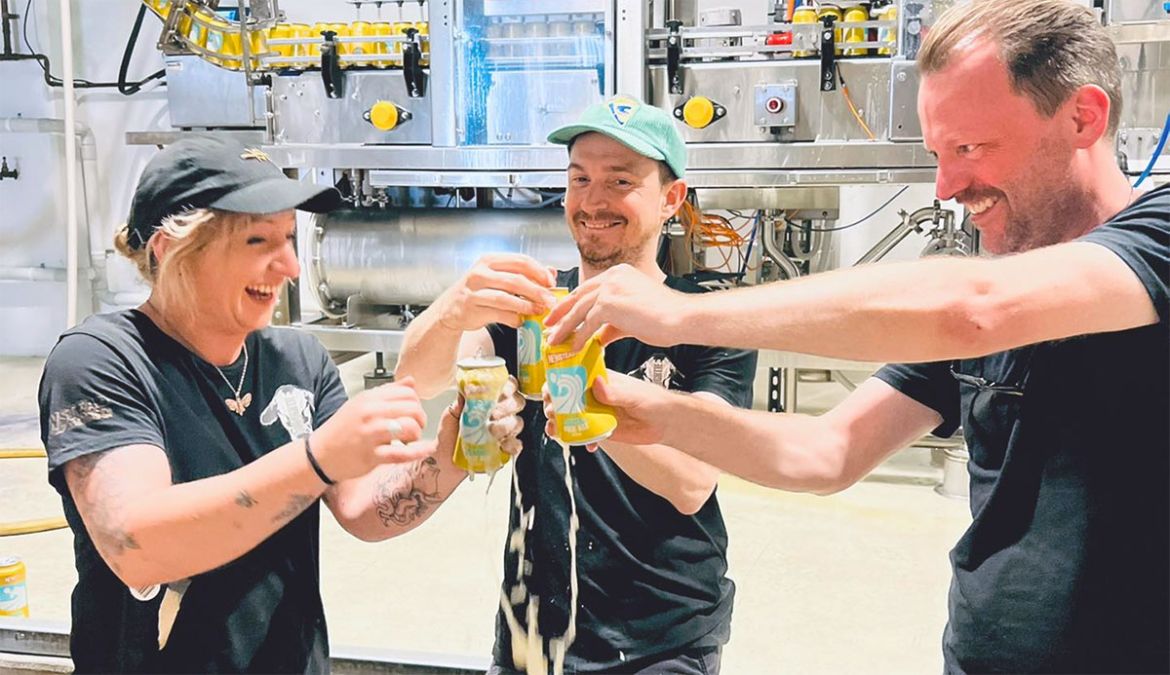
For Marcus, it was a far cry from what he’d expected when joining Newstead the year before. What was to be a part-time consulting role as he developed a quality program for the brewery within months turned into a head of production position. That he was even there in the first place can be traced back to his first brewing job too: it was current 3 Ravens head brewer Brendan O’Sullivan who pointed him towards Newstead when he was preparing to move back from the US.
“I joined them for an online tasting of 55 [an American pale ale Marcus created back in 2008 that had been re-brewed in 2020],” he says, “and hung around at the end for a beer with the guys.”
That discussion brought him back into an Australian brewing industry rather different from that he’d joined in 2003: “a steep learning curve” is how he describes his start at 3 Ravens. He’d been homebrewing since he was 16, had helped a high school mate make a film about brewing, and brought with him a wealth of experience in hospo: “I cleaned my first beer lines 31 years ago,” he admits.
The hospo career had become increasingly beer-centric over time, with Marcus working at The Peacock in Northcote – the first pub to stock Mountain Goat bottles – where one of the barflies, a Vietnam vet, befriended Marcus and shared some tips to improve his homebrewing.
He moved into commercial brewing at a time when it was still like the Wild West. 3 Ravens were pursuing a focus on English-style cask ales in a manner he says, “made no sense and only survived as long as it did because we’d focus on specific beers for the Lambs Go Bar” – the Fitzroy bar operated by Jason and Adam King before they took over The Rainbow and, later, The Woodlands in Coburg.
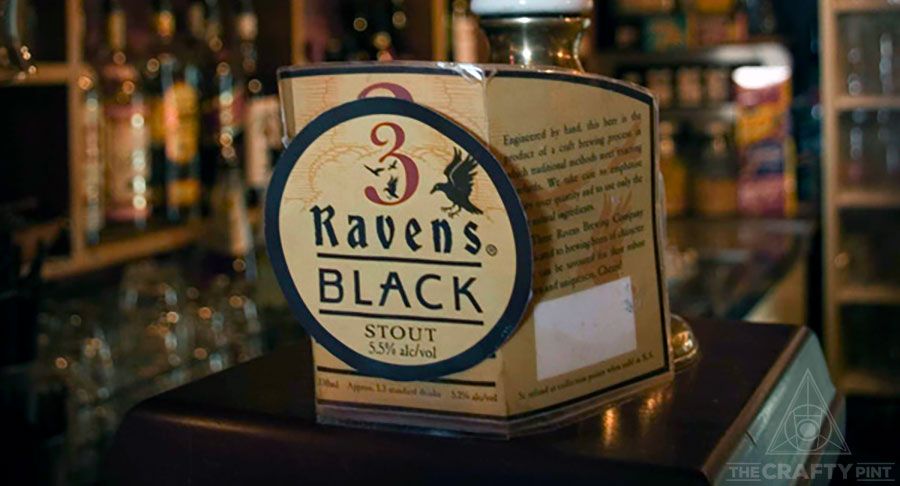
It did, however, lead to a very special moment.
“At one point, Roger Protz [a leading British beer writer and campaigner] came over to Australia for a Beer & Brewer event,” Marcus recalls. “He drank a cask beer that I made – that was the pinnacle for me. I had all of his books.”
And what did he make of this young Australian’s efforts?
“He was very polite,” Marcus says. “He drank it.”
From there, he became one of the first hires at Thunder Road Brewing in Brunswick, initially as head of production alongside American brewer Harvey Kenney, then as head brewer. Again, it was a wild ride, with founder Phillip Withers funding an operation unlike pretty much anything seen in the local microbrewery world at the time, targeting non-craft drinkers with beers like their Full Steam Lager and Brunswick Bitter (in a manner that seems rather prescient in today’s climate) and going on to win those aforementioned AIBA gongs.
“When we won the medium-sized brewery trophy, I had an unlimited budget,” he says. “I couldn't spend the money fast enough. If we hadn't won my ass would have been grass!”
After six years in Brunswick, the States came calling when his wife, Dr Andrea La Nauze, now a lecturer at the School of Economics at the University of Queensland, landed a role there. Marcus was hired for the first job he applied for, becoming head brewer at Mindful Brewing in Pittsburgh as the owners were in the process of setting up their brewery. He ended up redesigning and commissioning the brewery, which sold most of its beer and seltzer through Mindful’s own taprooms and a chain of supermarkets owned by one of the brewery founders.
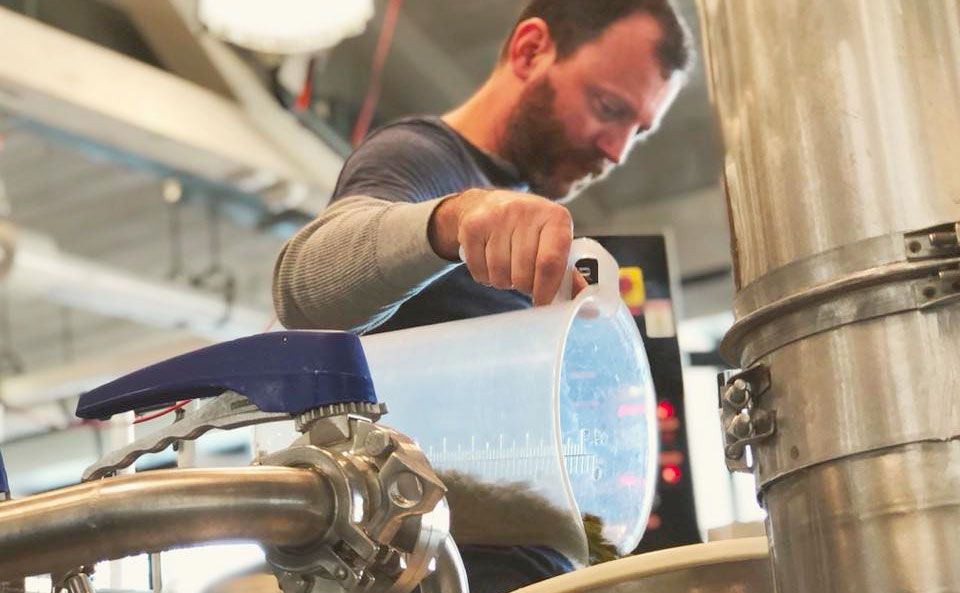
When COVID hit, they started considering a move back to Australia, with one incident in particular helping them make their decision.
“Our daughter came home from childcare one day with an American accent,” Marcus recalls. “And that was the nail in the coffin – four years to the day from arriving there.
“It was a good experience, I made a lot of contacts, and got to rebuild the Pittsburgh District of the Master Brewers Association.”
Having helped rebuild Newstead since returning, he says the brewery is getting back on an even keel following a period in which they got “pretty close to the wall” financially.
“The thing that really put us back in balance was the FIFA Women's Soccer World Cup,” he says. “All of the games were at Suncorp and it was just remarkable.”
If you’d told him – or anyone in the Aussie craft beer industry in 2003 for that matter – they’d be brewing beers for thousands of people heading to watch women play in front of a sold-out crowd of 50,000 people within their lifetime, they’d probably have gone further than “remarkable” and into the realms of “never gonna happen, mate”. That is has is a reminder that, for all the challenges the industry is facing, the beer world has come a long, long way.
So, as Marcus approaches his 20th anniversary in beer – and having left our discussions about independence, consolidation, the rise of beer quality and more on the cutting room floor – here’s his entry into our long-running Brew & A series.
Marcus Cox
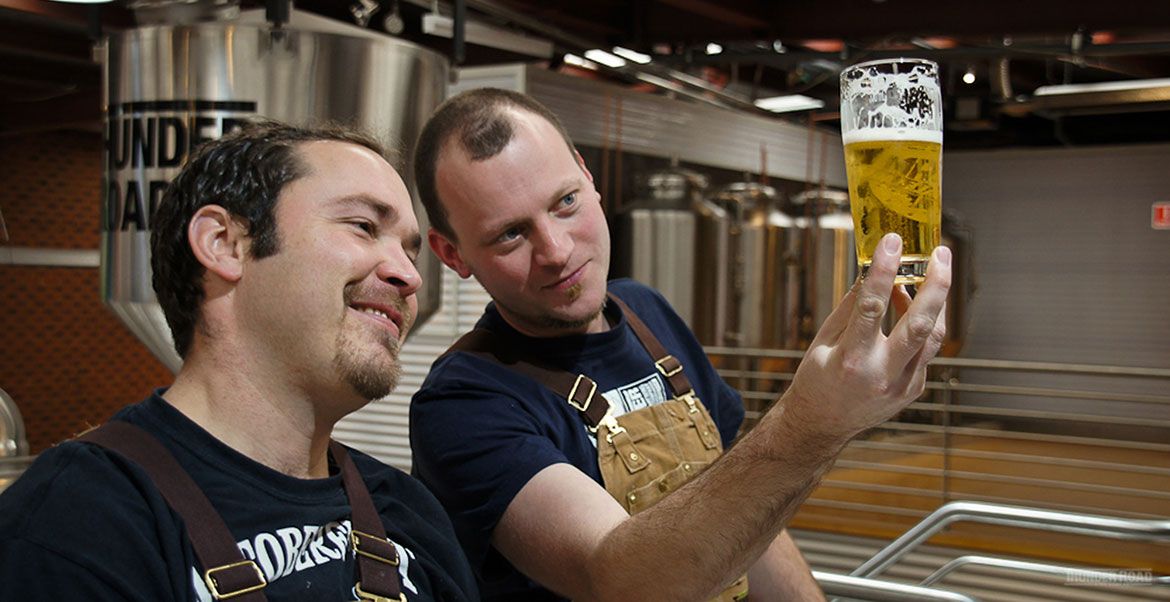
What would you be if you weren’t a brewer?
Chef.
What was your epiphany beer?
Chimay Blue early, thanks to MJ Beer Hunter, later Shift Lager (New Belgium) and Knappstein Reserve Lager. More is not better.
How did you first get involved in the beer world?
Underage homebrew, hospitality.
What's the best beer you’ve ever brewed?
Terry’s Ale or Mindful Helles. Collingwood Draught according to the medal tally.
What's your single favourite ingredient to use in beer?
Process.
Are there any beers you’ve brewed that might have been better left on the drawing board?
Imperial Beetroot Kolsch, Mushroom Biere de Garde. Anything with vegetables.
If you could do a guest stint at any brewery(s) in the world, which would it be and why?
I’ve been fortunate enough to tick a lot of guest stints over the years. I could never spend too long with the guys at Chuckanut.
Anybody, anytime, ever? Pierre Celis in his last phase – Grottenbier.
Which local breweries inspire you?
Mountain Goat. First round Coopers Vintage – 98/99.
What inspires you outside the world of brewing beer?
Music I can enjoy while being tone deaf. Cooking. New Hollywood cinema.
What's your desert island beer – the one to keep you going if you were stranded for the rest of your days?
Duvel – a beer for all occasions.
And what would be the soundtrack to those days?
Mike Patton. Given his prolific nature, it’s a cheat answer.
If you couldn’t have beer, what would be your tipple of choice?
Fino Sherry.
What's the one thing you wish you’d known before becoming a brewer?
How to brew.
And the one piece of advice you’d give to anyone considering a career in craft beer?
Being a big personality is great for marketing, being humble and putting the beer first is great for beer.
You'll find other Brew & A articles here.



